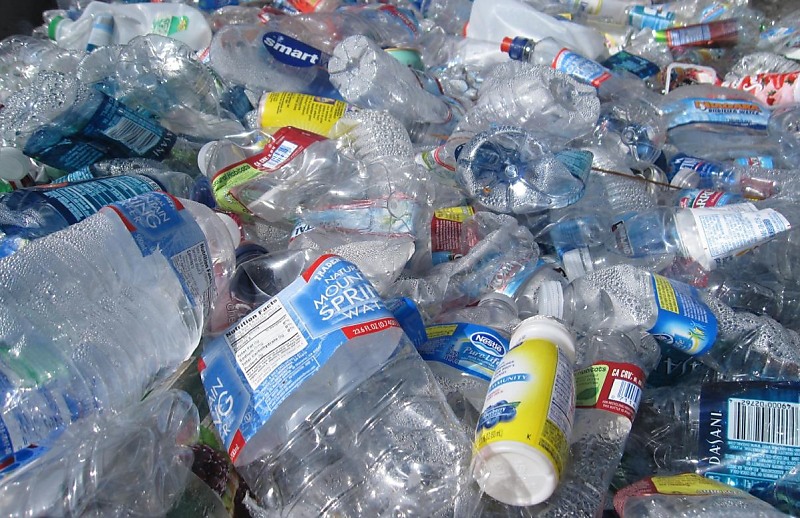A $1,300 per tonne tax on businesses that manufacture plastic packaging is needed to tackle a “growing tsunami” of waste that recycling alone cannot fix, according to a think tank.
The Australia Institute said its proposed tax on “virgin” plastic would affect 1.12 million tonnes per year and could stand to raise up to $1.5 billion if current demand continued, according to the paper Plastic waste in Australia released on Friday.
Waste program director Nina Gbor said “drastic” action was needed to reduce the country’s use of plastic.
“Australia’s plastic consumption is increasing, not falling. The government needed to act yesterday,” she said.
The think tank based the $1,300 amount on the European Union’s plan to tax non-recycled plastic packaging waste at €800 per tonne.
It said “effective” plastic taxes recently introduced in Spain, the UK and Italy showed there was “every reason to believe a similar policy would help reduce plastic packaging waste in Australia”, despite it being “too early to tell how effective the policy has been” with data.
The Australian Packaging Covenant Organisation, a not-for-profit established to coordinate national waste reduction targets, estimated that 95 per cent or 1.12 million tonnes of plastic packaging in 2020–21 was made from “virgin”, fossil-fuel feedstocks that had never been used or processed before.
A $1,300 per tonne tax could raise up to $1.48 billion a year, dwarfing the amounts generated by existing taxes like the Recycling Modernisation Fund, which only raised about $250 million.
The paper said proceeds could be used to ramp up recycling programs and that increasing the cost of producing virgin plastic would remove existing financial incentives and encourage companies to move to more sustainable materials.
According to the latest S&P Global figures, the spot price for virgin high-density polyethylene (HDPE) in Asia was around $US900 per tonne ($1,345), down from $US1,500 a decade ago due to a global glut of petrochemicals.
“We know that Australians support tougher action to curb plastic waste, and that taxes and schemes requiring producers to fund the collection and recycling of plastic they produce are working overseas,” Ms Gbor said.
The report said that since 2000, the total amount of plastic consumed domestically has more than doubled. Per capita use had also increased by 60 per cent to 146kg per person.
In the same period, the recovery of plastic had stagnated. This was because of difficulties in recycling plastics due to toxicity risks, shedding of microplastics and the fact it was an “uneconomical” process, the report said.
Consumption was also forecast to increase a further 2.5 times to 10 billion tonnes by 2049–50, driven by an increase in the manufacture and use of plastic products and products incorporated with plastic, such as synthetic fibres used in clothing.
The growth comes despite attempts to set recycling targets in recent years. State and federal governments introduced a National Waste Policy Action Plan in 2019 pledging to phase out “problematic and unnecessary plastics”, recycle or compost 70 per cent of plastic packaging and ensure 100 per cent of packaging was reusable, recyclable or compostable, all by 2025.
But when a review last year by the APCO found 2025 targets were failing, targets were revised to 2040.
“Australia is facing a growing tsunami of plastic waste and is expected to miss every recycling target it has set,” Ms Gbor said.
Recycling alone would not be able to achieve these targets either, despite being touted as the “circular” solution to plastic waste.
“If recycling was the solution to the plastic waste crisis, it would have been solved by now. Instead, it just encourages the production and consumption of even more waste that is choking our landfill and oceans,” she said.

 Login
Login








You are not authorised to post comments.
Comments will undergo moderation before they get published.